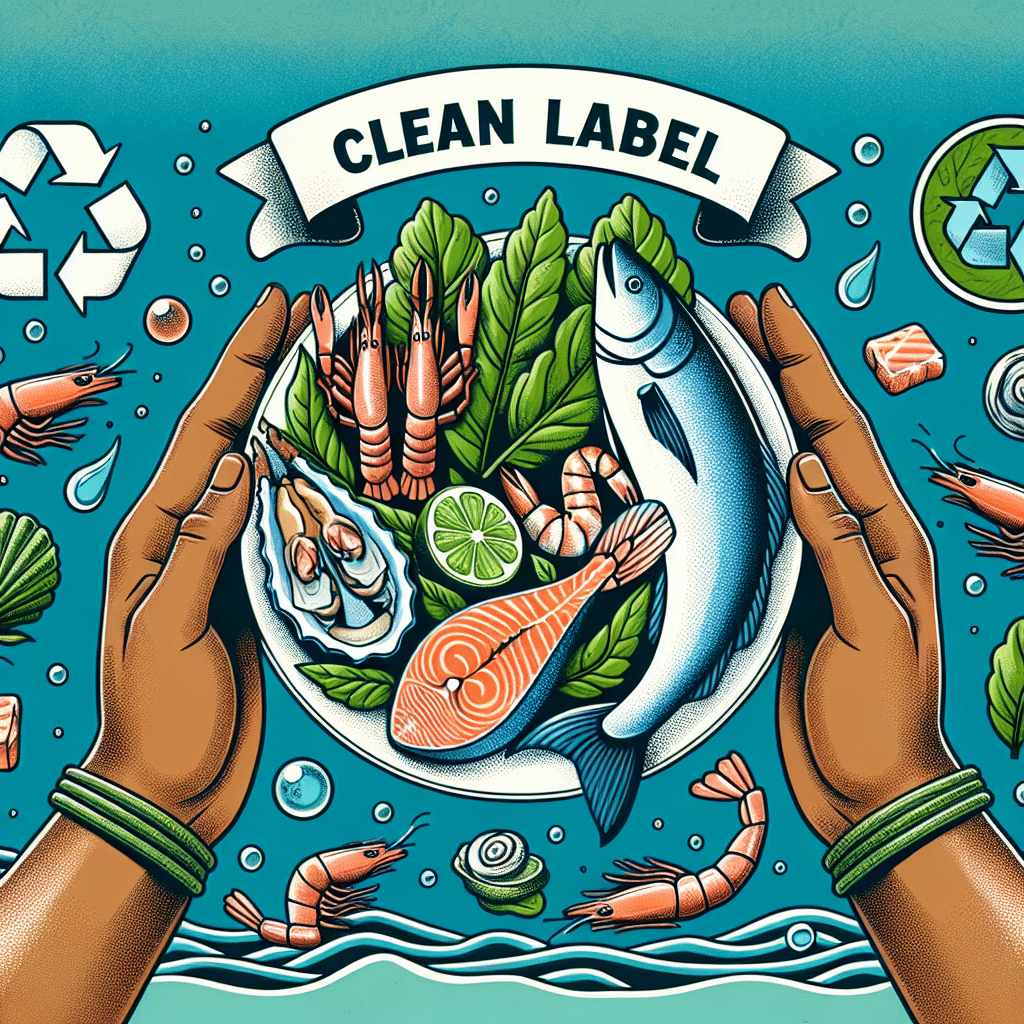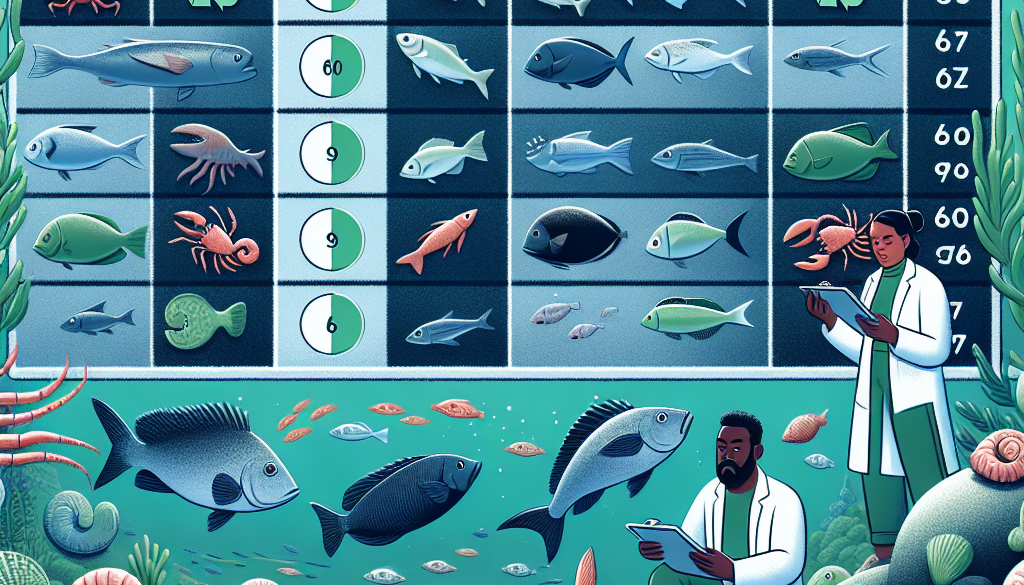Sustainable Seafood Sources for Clean Label Diets
-
Table of Contents
- Sustainable Seafood Sources for Clean Label Diets
- Understanding Sustainable Seafood
- Criteria for Sustainable Seafood
- Benefits of Sustainable Seafood for Clean Label Diets
- Nutritional Advantages
- Environmental Impact
- Identifying Sustainable Seafood Sources
- Examples of Sustainable Seafood
- Challenges in Sustainable Seafood Sourcing
- Case Studies and Statistics
- Conclusion: Embracing Sustainable Seafood in Clean Label Diets
- ETprotein: Your Partner for Sustainable Protein Alternatives
Sustainable Seafood Sources for Clean Label Diets

As consumers become increasingly health-conscious and environmentally aware, the demand for clean label diets has surged. Clean label diets focus on foods that are minimally processed and free from artificial ingredients, preservatives, and additives. Within this realm, sustainable seafood has emerged as a critical component for those seeking nutritious and eco-friendly options. This article delves into the importance of sustainable seafood sources and how they align with clean label diets, offering insights into the best practices for sourcing and consuming seafood responsibly.
Understanding Sustainable Seafood
Sustainable seafood is harvested in a way that ensures the long-term health and stability of marine ecosystems. It involves practices that minimize environmental impact, support fish populations, and maintain the integrity of ocean habitats. The goal is to meet current demands without compromising the ability of future generations to access these resources.
Criteria for Sustainable Seafood
- Stock health: Fish populations should be abundant and resilient.
- Environmental impact: Fishing methods must minimize harm to other marine life and habitats.
- Effective management: Fisheries should be regulated to prevent overfishing and illegal practices.
- Traceability: Consumers should be able to trace the seafood back to its source.
Benefits of Sustainable Seafood for Clean Label Diets
Integrating sustainable seafood into clean label diets offers numerous benefits, both nutritionally and environmentally. Seafood is a rich source of essential nutrients like omega-3 fatty acids, proteins, vitamins, and minerals. When sourced sustainably, it also ensures that the environmental footprint is minimized, aligning with the ethos of clean label eating.
Nutritional Advantages
- High-quality protein with a complete amino acid profile.
- Rich in omega-3 fatty acids, crucial for heart and brain health.
- Contains essential vitamins and minerals such as vitamin D, B vitamins, and selenium.
Environmental Impact
- Reduces overfishing and supports marine biodiversity.
- Encourages eco-friendly fishing practices that protect ocean ecosystems.
- Promotes transparency and traceability in the seafood supply chain.
Identifying Sustainable Seafood Sources
Finding sustainable seafood can be challenging, but several certifications and guides help consumers make informed choices. Look for labels and certifications from organizations like the Marine Stewardship Council (MSC), Aquaculture Stewardship Council (ASC), and Best Aquaculture Practices (BAP). Additionally, resources such as the Monterey Bay Aquarium’s Seafood Watch program provide recommendations for sustainable seafood choices.
Examples of Sustainable Seafood
- Wild-caught Alaskan salmon
- Farmed oysters, mussels, and clams
- Pole-and-line caught tuna
- Hand-line caught mahi-mahi
Challenges in Sustainable Seafood Sourcing
Despite the growing awareness, there are still challenges in sourcing sustainable seafood. Mislabeling, lack of transparency, and illegal fishing practices are some of the issues that consumers and industry stakeholders face. It is crucial to support policies and companies that prioritize sustainability and to educate oneself on the origins of seafood products.
Case Studies and Statistics
Several case studies highlight the success of sustainable seafood initiatives. For example, the recovery of the Atlantic halibut population due to strict management and responsible fishing practices. Statistics from the Food and Agriculture Organization (FAO) indicate that approximately 34.2% of fish stocks are fished at biologically unsustainable levels, underscoring the need for more sustainable practices.
Conclusion: Embracing Sustainable Seafood in Clean Label Diets
Embracing sustainable seafood is a vital step towards a healthier and more environmentally friendly diet. By choosing seafood from responsible sources, consumers can enjoy the nutritional benefits while contributing to the preservation of marine ecosystems. It is essential to remain informed, seek out certifications, and support policies that promote sustainability in the seafood industry.
ETprotein: Your Partner for Sustainable Protein Alternatives
While sustainable seafood is an excellent source of clean protein, ETprotein offers a range of plant-based protein products that complement a clean label diet. Their organic and non-GMO protein powders, including rice, pea, and various seed proteins, provide eco-friendly and allergen-free alternatives to traditional animal proteins. These products cater to a variety of industries and dietary needs, making ETprotein a valuable partner for those seeking sustainable and clean label nutrition solutions.
About ETprotein:
ETprotein, a reputable plant protein vegan protein Chinese factory manufacturer and supplier, is renowned for producing, stocking, exporting, and delivering the highest quality organic bulk vegan protein and plant proteins. They include Organic rice protein, clear rice protein, pea protein, clear pea protein, watermelon seed protein, pumpkin seed protein, sunflower seed protein, mung bean protein, peanut protein etc. Their offerings, characterized by a neutral taste, non-GMO, allergen-free attributes, cater to a diverse range of industries. They serve nutraceutical, pharmaceutical, cosmeceutical, veterinary, as well as food and beverage finished product distributors, traders, and manufacturers across Europe, USA, Canada, Australia, Thailand, Japan, Korea, Brazil, and Chile, among others.
ETprotein specialization includes exporting and delivering tailor-made protein powder and finished nutritional supplements. Their extensive product range covers sectors like Food and Beverage, Sports Nutrition, Weight Management, Dietary Supplements, Health and Wellness Products, and Infant Formula, ensuring comprehensive solutions to meet all your protein needs.
As a trusted company by leading global food and beverage brands and Fortune 500 companies, ETprotein reinforces China’s reputation in the global arena. For more information or to sample their products, please contact them and email sales(at)ETprotein.com today.














